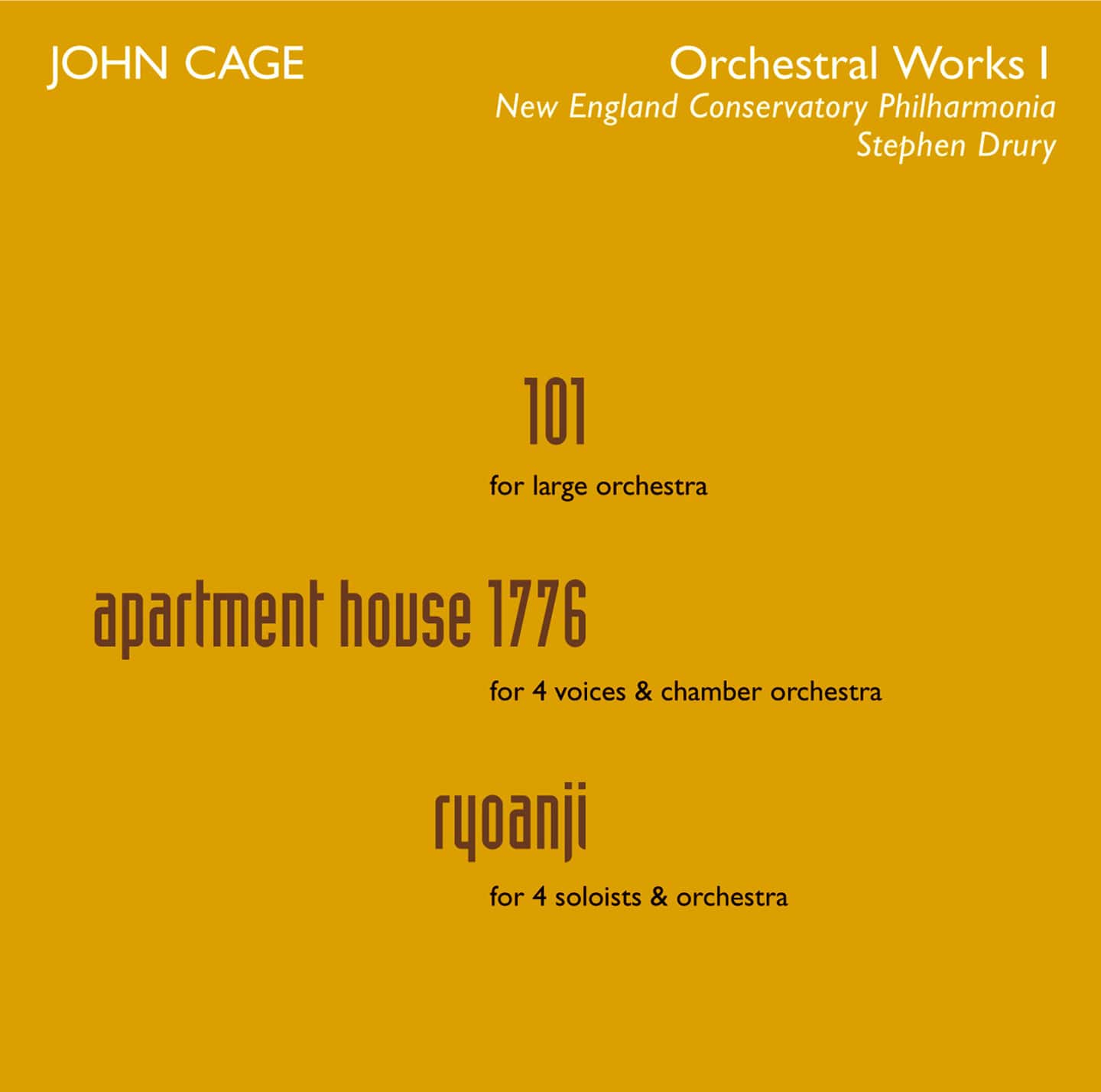1. John Cage speaks about 101
2. 101 (1989)
for large orchestra
3. APARTMENT HOUSE 1776 (1976)
for four vocalists with chamber orchestra
Walter Buckingham, Protestant
Darrell Dunn, Native American
Semenya McCord, African American
Chiam Parchi, Sephardi
4. RYOANJI (1983-85)
for four soloists with orchestra
Fenwick Smith, flute
Anthony D’Amico, string bass
Michael Miller, oboe
Petur Eiriksson, bass trombone
Stephen Drury, conductor
New England Conservatory Philarmonia
COMPOSER SUPERVISED FIRST RECORDINGS
This is the first record to collect John Cage’s orchestral works. The compositions presented here were recorded in thepresence of the
composer during the New England Conservatory’s John Cage Festival in Boston in 1991. Dating fromCage’s middle-to-late period, the three pieces show three very different sides of Cage’s musical personality.
101, for an orchestra of the same number of musicians, was commissioned by the Boston Symphony in celebration ofCage’s appointment as Charles Eliot Norton Professor of Poetry at Harvard and Radcliffe in 1988 and 1989. Opening with afortissimo blast from the brasses and double-reeds (which may be one of the loudest passages in Cage’s total œuvre),the piece continues to explore a sonorous world ranging from chords of three or four tones to massive clusters along withbowed piano sounds and unique percussion effects.
Apartment House 1776 was also written for the BSO and its music director Seiji Ozawa, commissioned by the NationalEndowment for the Arts to be performed by America’s six major orchestras as part of the Bicentennial celebrations in theU.S. during 1976. Chamber orchestras play music that was performed in America during the period of the AmericanRevolution, punctuated by brass choirs and period solo drum marches while four solo singers perform songs of theProtestant, Sephardic, Native American and African American traditions. The effect is likened to how an apartment housemight have been in 1776, where one could hear a different music from each open window.
Ryoanji, a work whose music has a sensuous serpentine quality, exists in several performing versions. This isthe first recording (and performance) to present the orchestral version together with four out of the five possibleinstrumental soloists.

